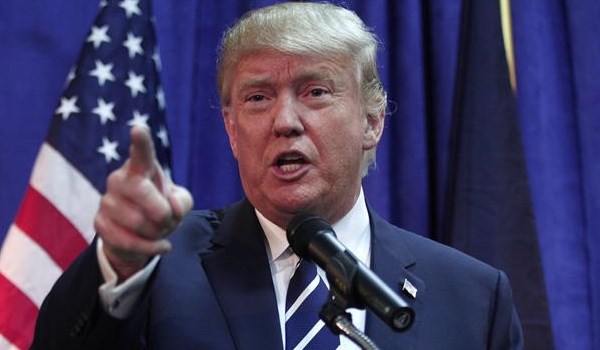
RNA - As per a new “threat assessment,” counterterrorism officials and international charlatans on the Capitol Hill claim that Iran "represents by far the most significant security challenge to the United States, its allies, and its interests in the greater Middle East."
On the same score, pro-Israel conservative entities such as the Washington Institute for Near East Policy and Heritage Foundation claim Iran might not be as much of a short-term threat to US domestic security as terrorist groups like ISIL and Al-Qaeda. “But its potential for developing a nuclear weapon once its deal with the US expires makes it a significant long-term threat.”
Other allegations include: (1) Iran poses a cybersecurity threat, (2) Iran sponsors militias and terrorist groups, (3) the sanctions relief that Iran got from the nuclear deal could help the country increase its terrorism operations in other countries, (4) Iran is not changing its behavior and is more provocative, (5) and Iran is more destabilizing force now post-nuclear deal.
As previously, the international crooks fail to offer any evidence to support their baseless allegations. It’s a sure laugh-line to mention that they are also unable to substantiate as to why Iran’s regional policies are destabilising. Instead, they mostly focus on Iran's lawful support for the Regional Resistance Front as well as involvement in the ongoing war against ISIL and Al-Qaeda in Iraq and Syria.
Per usual, the similarities between the language used by kids fighting on a playground and American politicians and counterterrorism experts describing Iran as “top threat” to their regional interests is stunning. In all cases it boils down to this: The globalist criminal syndicate has lost the war on Syria. They also hate the post-nuclear Iran for not changing its behaviour.
This is not exactly what the War Party had in mind when they signed the nuclear deal with Iran in 2015. They did so to force Tehran to change its behaviour and get along with them in other important issues related to Iraq, Syria, Lebanon and Palestine. But Tehran did the exact opposite because the agreement was on NUCLEAR differences and not on other issues. So they branded Iran as the “top terror state,” as well as “the most significant security challenge to the US, its allies, and its interests in the greater Middle East."
After a year of calm, the warmongers even extended the Iran Sanctions Act for another ten years – in clear violation of the nuclear treaty. Leaders from both Republican and Democratic parties have said they plan to move next year to expand existing sanctions to target Iran over activities ranging from what they call “ballistic-missile testing and Persian Gulf actions to a growing cyberattack effort.”
Add to the equation the arrival in Washington in January of Donald Trump who has said he would gut the nuclear deal – with a cabinet filled with harsh critics of Iran – and there’s little doubt about Iran’s imminent return to the War Party’s agenda in the coming months.
Under this option, it seems a waste of time and effort to prove that Iran is not involved in state terrorism in furtherance of political or regional objectives, much less to explain that Iran is in no way a security threat to the American interests, or that what it is offering in Iraq and Syria is for pre-emotion - a clear and legitimate campaign to defend against or to deter terrorism.
Instead, a better option could be this: Regardless of how Washington would respond, Iran should continue to help the national armed forces to battle foreign-backed terrorist groups in both Iraq and Syria. What we have to remember is that everyone already knows whose malign activities and destabilising actions - post-September 11, 2001 - have been and still are the most enduring threat to peace and stability in the greater Middle East.
847/940